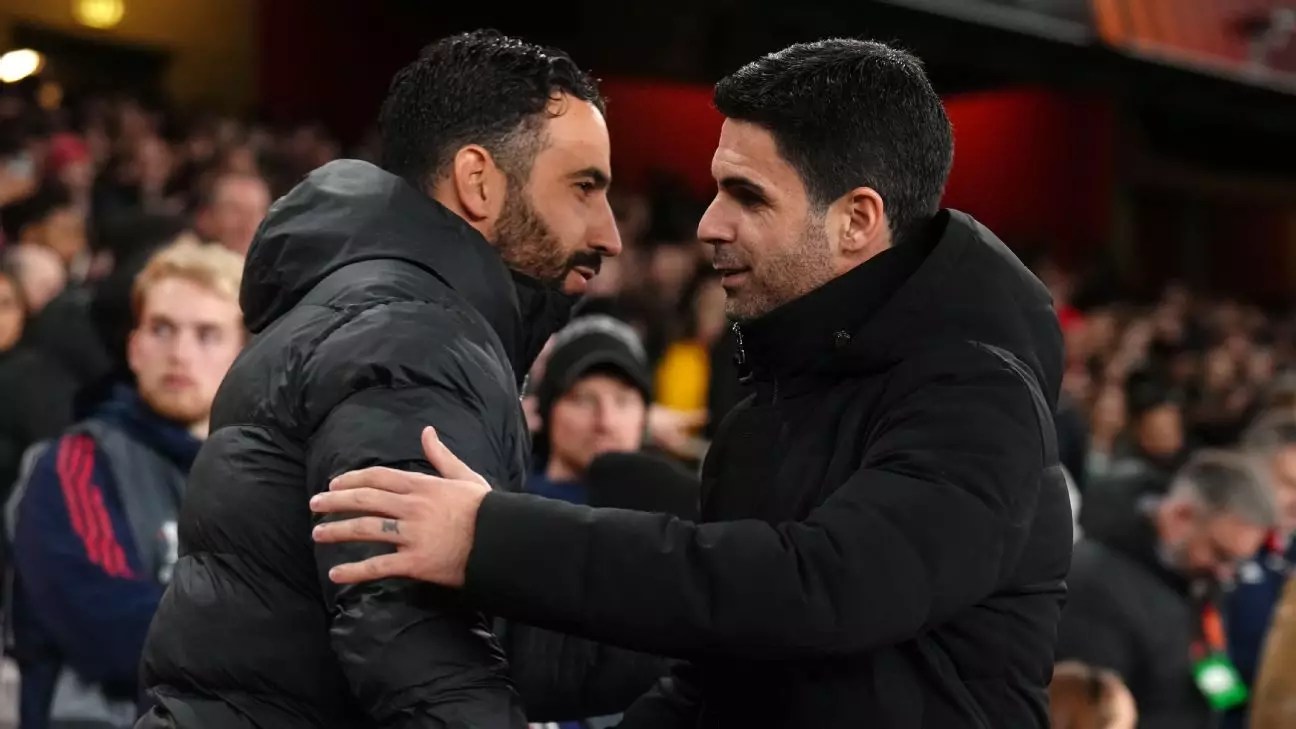As Arsenal gears up to face Manchester United in the FA Cup third round, manager Mikel Arteta has made it clear that the match will present a significantly tougher challenge compared to their previous encounter. With Ruben Amorim at the helm, United is expected to exhibit a tactical evolution stemming from extra training time following their 2-0 defeat to Arsenal on December 4. The Premier League fixture showcased Arsenal’s dominance, with Jurriën Timber and William Saliba scoring to secure the victory. However, the dynamics of football can shift rapidly, and United’s recent outcomes suggest that they are adapting under their new boss.
After facing the rigors of a congested schedule, Amorim was finally afforded a clear week to work directly with his squad. The results of this time investment were immediately evident in their subsequent match, where United held league leaders Liverpool to a 2-2 draw at Anfield. Arteta notes visible differences in United’s play, citing changes in player positioning and tactical approaches. This adaptability is critical in football, as altering strategies based on player characteristics can generate significant competitive advantages. United’s evolution in style could pose new challenges for Arsenal, which will need to be prepared for an opponent that is more cohesive and strategically astute.
Arteta has drawn parallels between Amorim’s current situation and his own experiences when he took charge of Arsenal during a busy winter period five years ago. However, he also emphasized the distinct challenges of each scenario, particularly noting Amorim’s greater experience and absence of pandemic-related disruptions. This context is vital; while both managers were appointed to improve their teams, they operate under different circumstances. Amorim’s tenure at United, albeit brief, suggests a rapid learning curve and the potential for transformation away from the frustrations of inconsistent performances.
The necessary time to implement a manager’s philosophy is undeniably crucial in football. For Amorim, the challenge lies in instilling his vision while simultaneously navigating a packed fixture list. Arteta suggests that his rival’s increased experience and favorable conditions might allow for quicker integration of tactical ideas. However, the unpredictability of football means that even seasoned managers can encounter difficulties in transforming a team’s fortunes within a short timeframe.
As Arsenal prepares for their clash with Manchester United, the evolving tactics under Ruben Amorim could shift the balance of the upcoming match. Arteta’s insights highlight the intricacies of managerial transitions and the profound impact that time can have on a team’s performance. With both teams looking to make their mark in the FA Cup, fans can anticipate an engaging encounter filled with strategic nuance and evolving narratives. While the past may provide insights into present challenges, the beauty of football lies in its unpredictability, leaving room for surprises from both squads on the day.


Leave a Reply